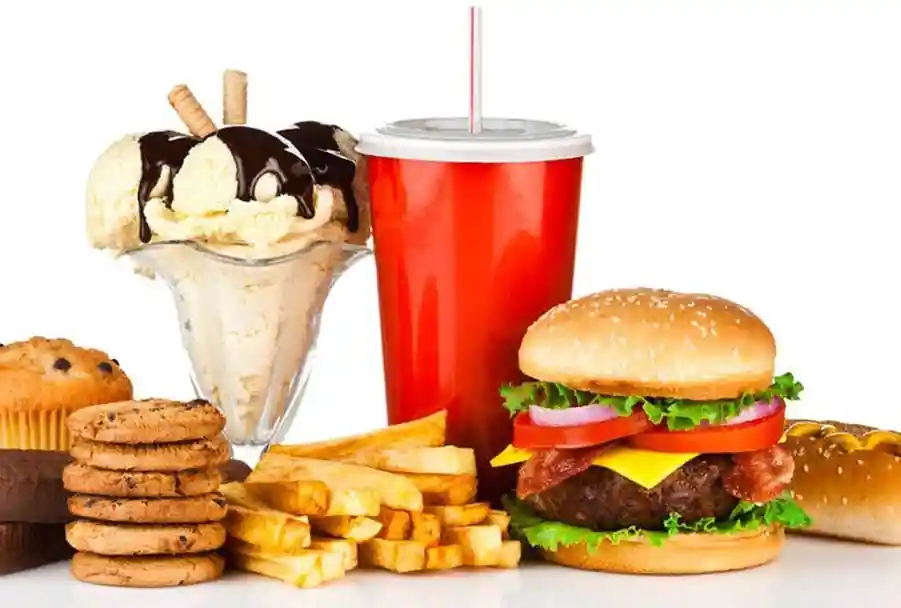In today’s fast-paced world, junk foods have become a quick fix for our busy lives. They are tasty, convenient, and readily available. However, the bitter truth is that indulging in these foods comes at a high cost. The impact on our health is far from sweet. Let’s take a closer look at how these tempting treats can lead to serious health problems.
Hidden Culprits: What are Junk Foods?
Junk foods are typically high in calories, sugar, unhealthy fats, and low in essential nutrients. They include items like sugary drinks, fast food, chips, candies, and processed snacks. These foods often lack the important vitamins, minerals, and fiber our bodies need to function optimally.
Weight Woes: The Obesity Epidemic
One of the most glaring consequences of consuming junk foods is the alarming rise in obesity rates. These foods are often calorie-dense but nutrient-poor, leading to an imbalance in our energy intake. Your body stores this surplus of calories as fat, leading to unwanted weight gain. Furthermore, obesity links to various health problems such as heart disease, diabetes, and joint issues.
Sugar Rush: The Danger of Excessive Sugar
Junk foods are notorious for their high sugar content. This excess sugar can wreak havoc on our bodies. It causes rapid spikes in blood sugar levels, leading to a surge of energy followed by a crash. Over time, this can contribute to insulin resistance, a precursor to type 2 diabetes. Furthermore, we have linked excessive sugar consumption to dental problems, making it a double-edged sword for our health.
Salt Overload: A Recipe for High Blood Pressure
Many junk foods are loaded with excessive amounts of salt. This can lead to high blood pressure, a condition that strains the heart and blood vessels. Over time, it can increase the risk of heart disease, stroke, and kidney problems. Cutting down on salty snacks is crucial for maintaining a healthy blood pressure level.
Fat Folly: Saturated and Trans Fats
Junk foods are often packed with unhealthy fats, including saturated and trans fats. These fats can clog arteries, leading to reduced blood flow and an increased risk of heart disease. They also contribute to the formation of plaque, which can cause heart attacks and strokes. Opting for foods with healthier fats, like those found in avocados and nuts, is a much wiser choice.
Missing Nutrients: The Empty Calories Conundrum
One of the major downsides of junk foods is their lack of essential nutrients. While they may satisfy our taste buds, they do little to support our overall health. Instead of providing the vitamins, minerals, and fiber our bodies need, they deliver empty calories. This can lead to malnutrition, even in those who consume these foods regularly.
Mental Health Matters: The Link Between Diet and Mood
It’s not just our physical health that is affected by junk foods. Research has shown a strong connection between our diet and mental well-being. Consuming excessive junk food has been associated with an increased risk of depression and anxiety. The lack of essential nutrients in these foods can disrupt the delicate balance of chemicals in our brain, impacting our mood and cognitive function.
A Way Forward: Making Healthier Choices
While the appeal of junk foods is undeniable, it’s essential to recognize the toll they can take on our health. Making conscious choices to limit their consumption is a crucial step towards a healthier lifestyle. Opting for whole, unprocessed foods like fruits, vegetables, lean proteins, and whole grains can provide the nutrients our bodies need to thrive.
In the battle between taste and health, it’s imperative to remember that the consequences of indulging in junk foods are far-reaching. From obesity to heart disease, these tempting treats can lead to serious health problems. By making informed choices and prioritizing whole, nutritious foods, we can take a significant step towards a happier, healthier future. Remember, it’s not just our taste buds that deserve a treat – our bodies do too.

